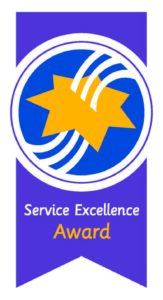Lily Foster (Lived Experience Advocate, LEAS) and Greg Taylor (Reform Agenda Officer, ATDC) presented at HR23 on ‘The Time is now: the Establishment of an Independent Peer Organisation in Tasmania’. HR23 is an international conference with over 1000 delegates (face to face and streamed). We know some of our advocates who contributed to this work listened to this historic moment via the stream, and it was great to see our team promoting harm reduction at such an important conference.
ATDC delegates Jackie, Dan and Greg have returned from HR23with insights, inspiration and ideas to share with the whole team. Highlights included a keynote from Helen Clark, former Prime Minister of Aotearoa New Zealand, and current Chair of the Global Commission on Drug Policy, and hearing about the challenges of delivering harm reduction services in African nations like Kenya, Uganda and Tanzania. There was a fantastic presentation by a youth worker from Canada who described a very simple way to empowering communities through a ‘blank book’ to capture their stories, and an interesting presentation looking at the nexus of domestic violence, mental health and AOD, through an organisational lens.
Resources were shared, including a toolkit for organisations to become culturally responsive and trauma informed and a resource for organisations interested in the rich area of harm reduction and how to implement it.
Sector Development Manager Dan reflected that harm reduction could be called “Human Promotion,” as most speakers emphasised the importance of treating everyone with fairness, compassion, and access to healthcare, regardless of their background or circumstances. It was clear that decriminalisation of drugs is just one aspect of the need to decriminalise populations who are disproportionately policed, such as first nations people, the disadvantaged, and people experiencing homelessness (to name a few).
Another presentation that stood out was the implementation of needle and syringe programs (NSPs) in Ukrainian prisons despite facing existential threats. NSPs can reduce the transmission of blood-borne diseases by providing sterile needles and syringes to people who inject drugs. It begs the question: if people are injecting drugs in prisons in Tasmania, do we not have a responsibility to ensure their safety?
Lastly, the concept of safe supply was a paradigm shift. Organizations in parts of Canada, where fentanyl and contaminated drugs have claimed thousands of lives, are providing illicit drugs to people safely. This approach not only saves lives but also stabilizes the lives of people who use drugs, allowing them to access essential support such as housing, addiction treatment, mental health, and dental care.
Overall, the conference was an excellent opportunity to learn about the latest innovations and developments in harm reduction. Our delegates look forward to seeing more progress in Tasmania as we work together to ensure people are treated with kindness, dignity and respect on their journey to wellness and recovery.
Dr Jackie Hallam
Chief Executive Officer
Jackie’s career path reveals a lifelong learner, always searching for, and interrogating, contemporary evidence-based knowledge to drive policy and research work for the ATDC. Jackie enjoys applying this skill when collaborating on strategy, thinking about systems and problem solving generally.Read more✖Dr Jackie Hallam
Jackie’s career path reveals a lifelong learner, always searching for, and interrogating, contemporary evidence-based knowledge to drive policy and research work for the ATDC. Jackie enjoys applying this skill when collaborating on strategy, thinking about systems and problem solving generally. Jackie is committed to alcohol and other drug subject matter demonstrated through a rich tapestry of experience in roles such as researcher, frontline work in needle and syringe programs, program evaluation and now in the policy role she has held since 2016. In more recent years Jackie has become well practiced at people management and loves to be part of a team – especially a team like this one at the ATDC. Working with Alison and the team is a career highlight and she feels like the team has hit a ‘sweet spot’ with the current mix of skills and talents, underpinned by strong shared values. Jackie would love to see a time when there are sophisticated conversations about alcohol and other drugs. In her words “…drugs have long been used by humans, it is time that we stop discriminating against people who use. Most people use alcohol and or drugs with minimal harm or disruption to their lives, but there exist some who experience way more harm- why is that?” Career highlight:
- Doctor of Philosophy, University of Tasmania, 2006 – ‘Rise and Stall of Harm Reduction Policy in Australia, 1980 – 2000’
Daniel Vautin
Director of Policy & Impact and 2IC
A compassionate and energetic people leader and teammate, Dan fights with quiet integrity for what is right. He does so with humour and humility, thinking deeply and widely, all the while keeping things fun with a sprinkling of dad jokes. Dan balances serious intelligence with a light heart and an open mind.Read more✖Daniel Vautin
A compassionate and energetic people leader and teammate, Dan fights with quiet integrity for what is right. He does so with humour and humility, thinking deeply and widely, all the while keeping things fun with a sprinkling of dad jokes. Dan balances serious intelligence with a light heart and an open mind. Curiosity keeps him moving forward – and he is currently studying a Bachelor of Science in Psychological Science at Swinburne University. One of a rare breed of people who can play in both the strategic and operational spaces with ease, Dan has been responsible throughout his career for the development and execution of ideas ranging from start-up business development to AOD pilot program creation. Whether managing the operations of the worlds largest wild-caught abalone exporter or playing an integral role in the early days of the Mates4Mates veterans charity in Tasmania, people have been central to Dan’s work. Dan would love to see a future where everyone feels a sense of belonging and connection. Career highlights:
- More than doubled the funding, delivering a sustainable future for a key ATOD primary prevention program in Tasmania
- Successfully brought the Alcohol and Other Drug Cognitive Enhancement program to pilot stage in Tasmanian community-managed ATOD treatment services.
- Learning that the heart has 40,000 neurons, effectively being a second brain in the body. Mind blown!
Greg Taylor
Director, Lived Experience
Greg is highly experienced in the visual arts and community development sectors. He helped establish the Spinifex Hill Studio in the Pilbara region of Western Australia and has worked around the country as a freelance producer.Read more✖Greg Taylor
Greg brings his artistic sensibility to his role, quietly radiating intelligence and creativity. He is witty and sharp, but has a steady and reliable nature that the team greatly appreciates. Greg’s skills and experience in working with a broad range of people means he is insightful and sensitive, and can adapt to the various daily experiences his role presents in an authentic way. Integrity is important to him, and this shows in his honesty and kind critiques of others when necessary – leading to strong and trusting relationships. Greg would love to see a legitimate platform for people who have lived experience to be heard, and for this to lead to positive change in our society. He also hopes for a future where uncertainty in our community leaders isn’t seen as a weakness, and curiosity is valued over immediate decision-making. Career highlights:
- Writing the business case for the independent lived experience organisation for the alcohol and other drug sector in Tasmania for the ATDC
- Being the founding studio manager of Spinifex Hill Studio in the Pilbara region of Western Australia



